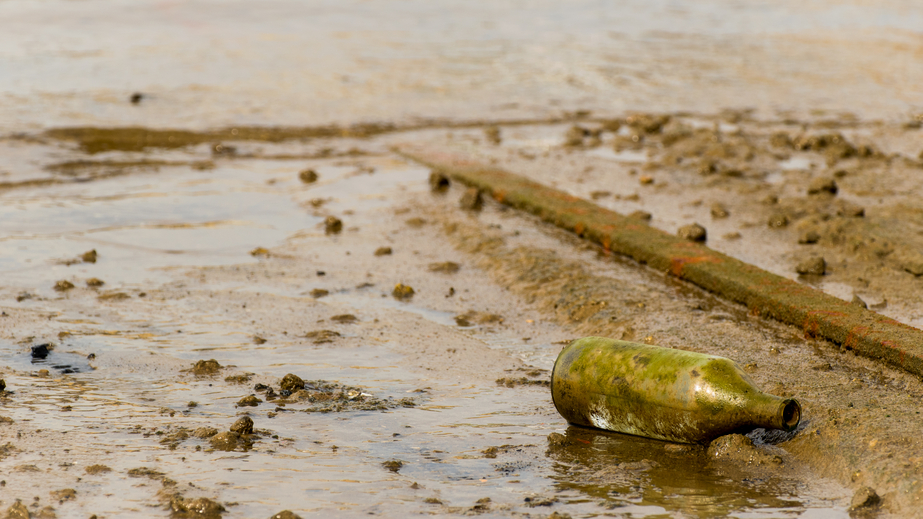Texas Environmental and Ethics 15 PDH Discount Package 2
Courses in this Package
Landfill Gas Collection and Treatment Systems (C11-001)
Earthquake Resilience Guide for Water and Wastewater Utilities (C02-076)
Ethics in Professional Practice (LE2-007)

This online engineering PDH course establishes criteria and guidance for landfill gas (LFG) collection and treatment systems. In addition, this course provides information about the design of systems used to monitor, collect, transport, and treat gas from municipal, industrial, and hazardous waste landfills.
LFG is produced by the biological decomposition of general solid waste refuse and other organic materials disposed of in the landfill. Its production typically begins within a year of waste placement, and may continue up to 50 years after landfill closure, with peak LFG production for any given disposal cell occurring within the first or second year of waste placement. The total LFG production rate increases as more waste is added to the landfill.
This course aims to provide information specifically relating to landfill gas collection systems in order to help landfill employees understand the available equipment and how and when to use them.
This 11 PDH online course is applicable to civil, environmental, geotechnical engineers, construction managers and landfill operators seeking an introduction to the operation and maintenance of landfill gas collection systems.
This PE continuing education course is intended to provide you with the following specific knowledge and skills:
- Understanding the purpose of landfill gas collection systems
- Learning how to design landfill gas collection systems
- Learning how to design landfill gas treatment systems
- Familiarizing with the operation and maintenance of landfill gas collection systems
- Familiarizing with the safety procedures and regulations of landfill gas collection systems
Upon successful completion of the quiz, print your Certificate of Completion instantly. (Note: if you are paying by check or money order, you will be able to print it after we receive your payment.) For your convenience, we will also email it to you. Please note that you can log in to your account at any time to access and print your Certificate of Completion.

This online engineering PDH course describes how water and wastewater utilities can be more resilient to earthquakes. It provides the best practices from utilities that have used mitigation measures to address the earthquake threat.
An earthquake is a sudden and violent shaking of the ground caused by movement within the earth’s crust or by volcanic activity. The water sector is particularly vulnerable to earthquake damage and service disruptions. By understanding the threat of earthquakes and the potential impacts to both the water infrastructure and the community, water utility owners and operators can make more informed decisions on earthquake mitigation options.
This 2 PDH online course is applicable to environmental, civil, and structural engineers as well as others interested in learning more about how wastewater utilities can be more resilient to earthquakes.
This PE continuing education course is intended to provide you with the following specific knowledge and skills:
- Understanding the earthquake threat
- Knowing how to Identify vulnerable assets and determine consequences
- Learning how to pursue mitigation and funding options
- Familiarizing with the available tools to assess specific structures
- Familiarizing with the standards and resources for earthquake resilience
In this professional engineering CEU course, you need to review the document “Earthquake Resilience Guide for Water and Wastewater Utilities” which is based on the U.S. EPA publication number EPA-810-B-18-001 dated March 2018.
Upon successful completion of the quiz, print your Certificate of Completion instantly. (Note: if you are paying by check or money order, you will be able to print it after we receive your payment.) For your convenience, we will also email it to you. Please note that you can log in to your account at any time to access and print your Certificate of Completion.

In this online engineering PDH course, background on the philosophical models that guide ethical behavior is discussed and then applied to specific situations in engineering codes of ethics. This course is based on the American Society of Mechanical Engineers Professional Practice Curriculum, Volume 8, Section: Engineering Ethics.
Many engineering organizations have drafted codes of ethics to which their members are required to commit. Generally, these codes are quite similar and are based on a few fundamental principles which provide guidance to professional engineers in common situations. Nevertheless, there are many difficult or ambiguous situations in which the best ethical solution is difficult to determine.
This 2 PDH online course is intended primarily for engineers seeking to learn ethical principles and how to apply them to their professional practice.
This PE continuing education course is intended to provide you with the following specific knowledge and skills:
-
Determining ethical behavior using several philosophical models
-
Evaluating a practical situation in terms of a professional code of ethics
-
Identifying situations that represent conflicts of interest and formulate a proper response
-
Applying the standards of professional ethics in technical communication
-
Recognizing environmental impacts of engineering work
-
Considering principles of sustainable development in the performance of professional duties
In this professional engineering CEU course, you need to review "Ethics in Professional Practice" published by the American Society of Mechanical Engineers (ASME). (This course document is reproduced by permission of the ASME (www.asme.org). You may also download from or view this course document on the ASME's website by clicking on Ethics in Professional Practice).
Once you complete your course review, you need to take a multiple-choice quiz consisting of fifteen (15) questions to earn 2 PDH credit. The quiz will be based on this ASME publication.
Upon successful completion of the quiz, print your Certificate of Completion instantly. (Note: if you are paying by check or money order, you will be able to print it after we receive your payment.) For your convenience, we will also email it to you. Please note that you can log in to your account at any time to access and print your Certificate of Completion.